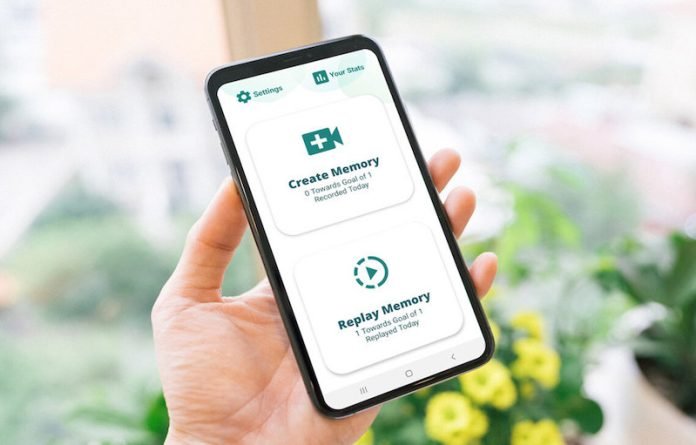
In a study from the University of Toronto, scientists found that a new smartphone application helps to strongly improve memory recall.
This could prove beneficial for individuals in the early stages of Alzheimer’s disease or other forms of memory impairment.
Dubbed HippoCamera for its ability to mimic the function of the brain’s hippocampus in memory construction and retention, the app enhances the encoding of memories stored in the brain by boosting attention to daily events and consolidating them more distinctly—thus later enabling richer, more comprehensive recall.
In a two-step process, HippoCamera users record a short video of up to 24 seconds of a moment they want to remember with a brief eight-second audio description of the event.
The app combines the two elements just as the brain’s hippocampus would, with the video component sped up to mimic aspects of hippocampal function and to facilitate efficient review.
Users then replay cues produced by HippoCamera at later times on a curated and regular basis to reinforce the memory and enable detailed recall.
The study showed that regular users of the app were able to recall more than 50% more details about everyday experiences that took place as many as six months earlier than if they had only recorded events and never replayed them.
The new research suggests that systematic reactivation of memories for recent real-world experiences can help to maintain a bridge between the present and past in older adults and holds promise for people in the early stages of Alzheimer’s disease or other forms of memory impairment.
The study also found that reviewing memory cues with HippoCamera resulted in more positive sentiment during later retrieval.
The researchers say that as people begin to lose their existing memories at any point in their lives, as well as their ability to create new ones, they start to lose their sense of self.
As a result, they often become disengaged from the people and events in their lives.
Their hope with HippoCamera is that by helping people feel closer to these people and events in their lives, we can help give them back their sense of self.
If you care about dementia, please read studies about factors that could help people get away from dementia, and carotenoid supplements could improve memory.
For more information about brain health, please see recent studies that cranberries could help boost memory, and how alcohol, coffee, and tea intake influence cognitive decline.
The study was conducted by Morgan Barense et al and published in the Proceedings of the National Academy of Sciences.
Copyright © 2023 Knowridge Science Report. All rights reserved.



